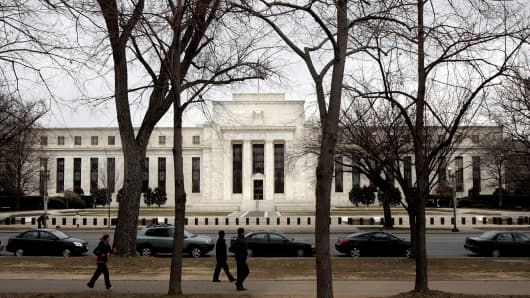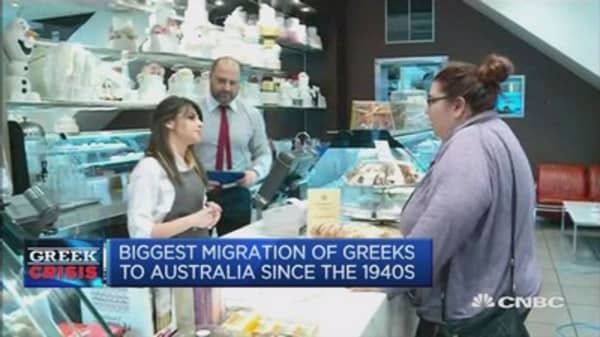Europe's worsening economic and political instability is of particular concern because that region takes more than one-fifth of U.S. exports. American export sales to Europe are declining, and the U.S. goods and services are also competing on world markets with European products priced in a sharply weakening currency.
The sad part is that Europe's unsettling political events could gravely damage its incipient recovery just as the ECB's policy seems to be getting some traction with the real economy. For the first time since the onset of the financial crisis, the ECB credit data for May are showing a substantial rebound of bank lending for housing and private consumption outlays. It would be a great pity if the monetary union's deepening systemic crisis were to kill business and consumer confidence. But that, unfortunately, cannot be ruled out.
The euro area's financial difficulties stem from deep-seated and arguably insolvable fundamental issues. The member countries are facing a choice between (1) a decisive step toward a federal state with a common fiscal policy, or (2) an uncertain future where sovereign nation states are expected to comply with arbitrary and unenforceable budget deficit and public debt rules.
Read MoreEuro sinks as ECB tightens squeeze on Greek banks
At the moment, there is nothing to indicate that euro area's political leaders and their constituencies are willing to accept an irrevocable merger into some sort of a European super-state. It follows, then, that the current situation will continue, with ad hoc administrative patches to the euro area's permanent crisis management. And, as is the case now, the politicians will leave the heavy lifting to the ECB.
Strong dollar means tight money
This is the political and institutional background to any "solutions" to the Greek problem. The good news is that the Greek referendum has cleared the way for urgent measures to restore the country's financial system and a functioning economy. Athens and Brussels apparently believe that their agreement will result in a "credible package," but it remains to be seen how much all that will enable Greece to resume growing after its relapse into a deepening recession.
The Fed is watching these developments fully aware that the euro area existential difficulties will continue, and that the ECB has to maintain its huge monetary creation to prop up the economy and to defend its currency.
Under these circumstances, the Fed has to expect that a strengthening dollar will make it necessary to re-calibrate the policy stance in order to take into account exchange rate effects (equivalent to a tightening credit posture) on America's economic growth, employment and price stability.
The evidence shows that the Fed has been doing that. The monetary policy, for example, has remained stable since the beginning of this year, even though the average economic growth of 2.7 percent in the year to the first quarter was an entire percentage point above the economy's (noninflationary) potential growth rate. The Fed was also unmoved by the core rate of inflation standing at 1.7-1.8 percent since the middle of last year – a level quite close to its medium-term target of 2 percent.
While the hard-money advocates kept calling for a rate hike, the Fed held steady. Its monetary base (the right-hand side of the balance sheet) at the end of May was almost exactly identical to its level at the beginning of this year. During the same period, the effective federal funds rate has been kept in the range of 0.03-0.13 percent – very much at the lower end of the 0.25 percent official target.
Read MoreWhy Germany won't back down on Greece: Ex-Fed's Fisher
Indeed, the Fed's hawks have been kept at bay because a central bank of an open economy does not raise interest rates at the time of its appreciating currency.
Investment thoughts
Economic and political events in Europe suggest that a strong demand for dollar-denominated assets will continue in the months ahead. Widely shared bets that the dollar-euro exchange rate is headed toward parity (from $1.0975 to the euro at this writing) look better than even for a number of reasons.
One, Europeans will continue to quarrel and, most probably, won't be able to put a credible end to the Greek economic and financial difficulties. Two, to stem the contagion, the ECB could even augment and accelerate its present program of asset purchases, flooding the market with excess euro liquidity. Three, no euro area country – including the export-obsessed Germany – opposes the euro's declining exchange rate.
There is enough there to stay the Fed's hand for longer than currently anticipated.
U.S. equities still look good to me.





